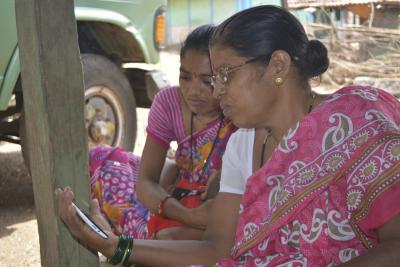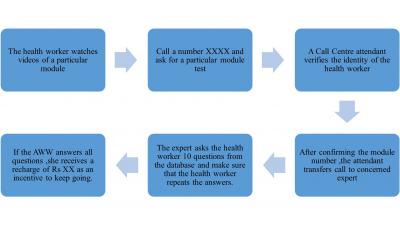

India’s performance in the field of maternal and child health has been poorer than expected irrespective of the tremendous economic growth the nation has seen. The latest National Family Health Survey - 4 (NFHS-4) data shows that 34.4 % children under the age of 5 are stunted in the state of Maharashtra. This is more particularly so in regions with high tribal population. One of the drawbacks identified of the Integrated Child Development Scheme (ICDS) and National Rural Health Mission (NRHM) has been the quality and frequency of the training given to the Anganwadi Worker (AWW), ASHA workers and their supervisors. Our research focuses on the implementation of an incentive based innovative approach for training of Anganwadi workers through low digital footprint mobile videos with a evaluation mechanism in place. We see three major advantages in this approach: First is the use of videos in local language as training content, second is the evaluation done over a call and last is the driving force of providing mobile talk time as an incentive. Whether such ICT based training will bring about immediate behavioural change is yet to be tested but it will definitely strengthen the capacity of the field level functionaries. A small-scale pilot involving 30 Anganwadi workers in a Tribal ICDS project in Nasik district was successfully conducted to test the feasibility and acceptability of such ICT based approach. Our pilot experience shows that the mobile talk time as an incentive is effective. However, this needs rigorous testing for their long-term usability. The training model was found to be quite feasible and accepted by the Anganwadi Workers. We are in the process of scaling up the model in district Dhamtari, Chhattisgarh.
Prof. Satish B Agnihotri
